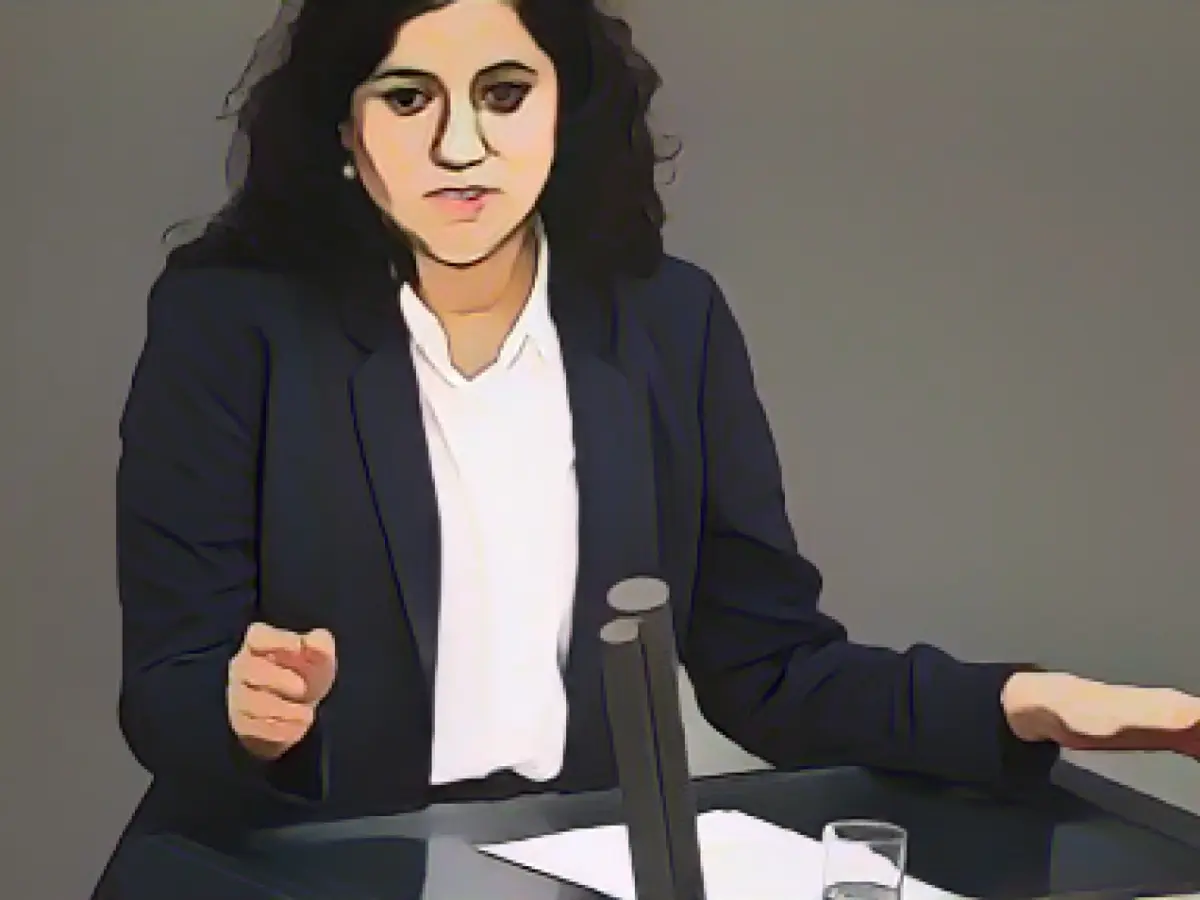Online Access Act - Slow digitalization: Khan sees location in danger
Green MP Misbah Khan sees serious negative consequences for Germany as a result of the slow pace of digitalization. "The inadequate digitalization of our administration is slowly but surely becoming a serious locational disadvantage," the interior politician told the German Press Agency in Berlin.
The federal and state governments actually had five years to digitalize their administrative services. The Online Access Act (OZG), which was passed by the Bundestag in August 2017, was supposed to serve this purpose. It gave the federal states until the end of 2022 to digitize all 575 administrative services and offer them online. However, the target has not even begun to be reached.
If you click through the so-called OZG dashboard, which is supposed to provide citizens with an overview, you will see that only 148 services are available digitally across Germany so far.
Accusation of a lack of transparency
The Chairman of the Regulatory Control Council, Lutz Goebel, accused the responsible Federal Ministry of the Interior of a lack of transparency in November. In the view of the Regulatory Control Council, the Online Access Act and its implementation had "disappeared into the basement", so to speak. The Regulatory Control Council is an independent body of experts that advises the Federal Government, the Bundestag and the Bundesrat on reducing bureaucracy and improving legislation.
According to the OZG, it would already count as a success if a government service was digitized in one federal state, for example. Other states could then simply adopt the application, according to the idea. However, the "one for all" principle has rarely worked properly. Too little "reuse potential" has been exploited, the Federal Audit Office complained in a report on the OZG.
In the new edition of the OZG, the aim is therefore to rely more on so-called open source software. This means that program codes are openly accessible and can be controlled and improved by users. Free license models are often associated with this. The most important open source project is the Linux operating system, which is also the basis for Google's Android operating system. This would enable authorities to adopt digital solutions from other authorities without the need for complex licensing procedures.
Khan: Reduce dependencies on manufacturers
"If taxpayers' money is spent on software development, the source code should also be made available," says Khan. "Through open source, we reduce dependencies on manufacturers, strengthen digital sovereignty and enable better reuse and further development."
There is also a shortage of IT specialists, which the digital association Bitkom laments. "Too few specialists and too much regulation are slowing down digital Germany," explained Bitkom President Ralf Wintergerst recently. "In addition to companies, this is also increasingly affecting public administration, which absolutely needs more digital expertise."
With the new version of the OZG - the OZG 2.0 - the federal government also wants to completely dispense with deadlines. The amendment focuses on completely converting administrative procedures to digital processes. This is intended, for example, to prevent data from being recorded digitally via web forms but then only printed out in the authorities and processed in analog form as usual. The cabinet approved the reform back in May, but the Bundestag has not yet passed it.
Green politician Khan describes digitalization as a Sisyphean task and refers to mistakes made by previous governments. "It would make the most sense to create a legal entitlement to a digital state," she says. "That would send a strong signal and be a powerful driver for a digitalization push."
OZG dashboard Report of the Federal Audit Office on the OZG Bitkom on skills shortage
Read also:
- Year of climate records: extreme is the new normal
- Precautionary arrests show Islamist terror threat
- UN vote urges Israel to ceasefire
- SPD rules out budget resolution before the end of the year
- Misbah Khan, a Green MP, expressed concerns about Germany's digitalization pace, noting that the slow process is becoming a significant locational disadvantage for the country.
- The Online Access Act, passed by the Bundestag in 2017, gave federal and state governments five years to digitize administrative services, with an end goal of having all 575 services available online by the end of 2022.
- Although Germany has struggled to meet the Online Access Act's targets, only 148 services are currently digitally accessible across the country.
- Lutz Goebel, the Chairman of the Regulatory Control Council, accused the Federal Ministry of the Interior of a lack of transparency in implementing the Online Access Act.
- The Regulatory Control Council is an independent body that advises the Federal Government, Bundestag, and Bundesrat on reducing bureaucracy and improving legislation.
- To encourage the use of digital solutions across authorities, the new version of the Online Access Act aims to rely on open-source software, where program codes are openly accessible and can be controlled and improved by users.
- Misbah Khan believes that open-source software can help reduce dependencies on manufacturers, strengthen digital sovereignty, and enable better reuse and further development.
- Ralf Wintergerst, Bitkom President, criticized the shortage of IT specialists and the excessive regulation, which he believes are hindering digital Germany's progress, affecting public administration as well.
- The federal government wants to completely abandon deadlines and focus on converting administrative procedures into digital processes in the new version of the Online Access Act, hoping to prevent data from being digitally recorded but then processed in analog form as usual.
Source: www.stern.de








